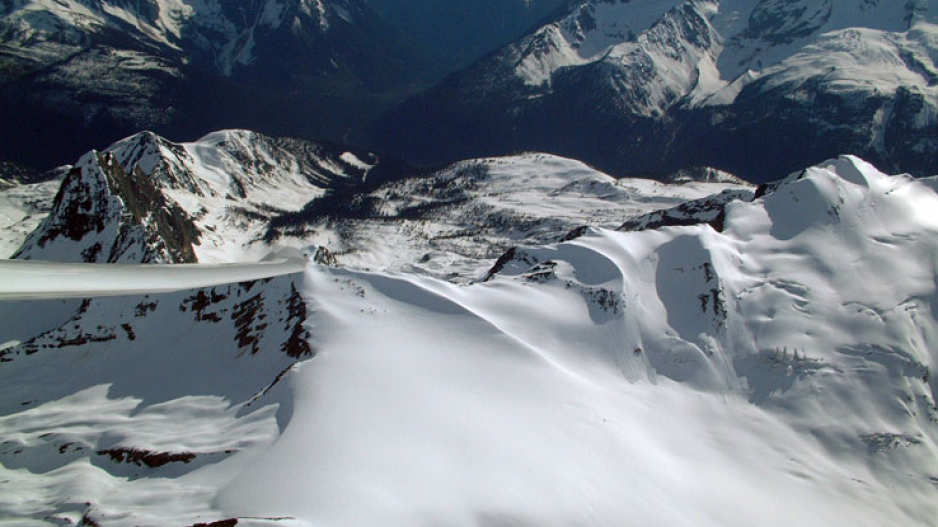A proposed East Kootenay ski resort is back on ice after B.C.’s top court ruled Aug. 6 that the minister of environment was correct in pulling the environmental approval for the massive project because it was not substantially started.
Glacier Resorts Ltd. proposed the Jumbo Glacier Resort, a year-round ski resort intended to be developed in southeastern B.C.‘s Purcell Mountains, more than two decades ago.
Now, said Pheidias Project Management Corporation vice-president Tom Oberti, Glacier has two options: appeal the B.C. court decision to the Supreme Court of Canada or proceed with a scaled-back version of the project.
The resort, 53 kilometres west of Invermere, is planned to give access with 20-23 lifts to four nearby glaciers at an elevation of up to 3,419 metres. Planned in three phases, the resort plans ultimately include 5,500 bed-units in a 110-hectare resort base area.
The company obtained a provincial environmental assessment certificate in 2004 requiring the project to be substantially started within five years, a deadline extended for a further five years in 2009.
While some construction and preparatory work was done by the expiry date, then-Liberal minister of environment Mary Polak in June 2015 determined that the project had not been substantially started by the October 12, 2014, deadline and that the environmental assessment certificate had expired.
The company appealed. A Supreme Court of B.C. judge ruled in August 2018 that the minister had failed to take into account a number of factors resulting in development delays, calling the minister’s failure to give weight to those factors unreasonable.
The decision was returned to the minister – George Heyman of the NDP – who remains in the portfolio.
However, the government appealed.
And, two of three appeals court judges agreed with the government’s arguments.
“It was permissible for the minister to look primarily at work accomplished on the ground in determining whether the project was ‘substantially started,’ and her conclusion that the project had not been substantially started was a reasonable one,” the majority decision written by Justice Harvey Groberman said.
The ruling said factors that resulted in project delays included a 2009 breakdown in negotiating with the Ktunaxa/Kinbasket Tribal Council on an impact management and benefits agreement.
“As accommodation of First Nations was an important consideration for the province, this led to delays in it reaching a master development agreement with Glacier,” the court said.
There were also difficulties with municipal zoning.
The proposed development was within the Regional District of East Kootenay, the directors of which were divided on how the project should be dealt with. It was anticipated that zoning for the development would be a long and controversial process.
Those directors requested the province declare the area a resort municipality and rezoning was put on hold until the province did that in 2012.
That drew some chuckles as the government appointed a mayor and council for a town with no people. Even its mailing address was somewhere else – Radium Hot Springs.
The project also faced numerous court challenges. And, Glacier alleged, “progress on the development was impeded in 2012 when the province, without notice, closed a primitive forest service road and removed a bridge that gave access to the project site. It also refers to other impediments it faced, including protesters blockading the resort site, environmental constraints on construction and timelines for design and tendering.”
But, said Groberman, eight years after the certificate had been issued, the company had not made a substantial start on a large resort project the certificate had been designed for. Rather, he said, what had been done was the creation of a small day-skiing area.
“As the Minister pointed out, such a development would not have required an environmental assessment certificate and was not what the massive project report was directed to,” Groberman said.
Oberti said the company lawyers have the ruling and are considering options.
“We’re still reviewing it,” Oberti said. “The board of directors will have to decide what to do with it.”




